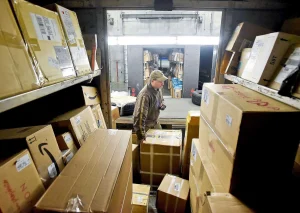The Advantages of Incorporating Customs Data into Your Business Operations

The automation of customs declarations has emerged as a significant focus within industries. Historically, the particulars of shipments, as documented in physical forms, are sourced from a variety of contributors, including manufacturers, sellers, buyers, carriers, freight forwarders, and importers. It is imperative to seamlessly merge this data with the requisite Customs reference information in order to produce a declaration. Ultimately, the critical factor in improving efficiency and ensuring compliance is the identification of the most suitable information sources and their proficient application in the declaration process.
Here, we will explore the advantages of integrating customs data into your business operations.
- Enhanced Supply Chain Efficiency
One of the most notable advantages of incorporating customs data is the improvement of supply chain efficiency. By having access to detailed information about the movement of goods across borders, businesses can make more informed decisions about inventory management, production, and transportation. This, in turn, reduces bottlenecks and delays, leading to a smoother supply chain operation.
- Risk Mitigation
Customs data allows businesses to identify potential risks in their international trade activities. This data can help in understanding the regulatory requirements and tariffs associated with specific products and regions, reducing the chances of compliance issues and unexpected costs.
- Market Expansion
Access to customs data provides valuable insights into emerging markets. By analyzing import and export trends, businesses can identify new markets with high demand for their products. This information can inform market expansion strategies and help companies tap into previously untapped opportunities.
- Competitive Advantage
In a competitive business environment, having a better understanding of customs data can set your company apart. It allows for more strategic decision-making, which can result in better pricing, improved service, and more efficient operations.
- Data-Driven Decision-Making
Customs data empowers data-driven decision-making. By analyzing historical import and export data, businesses can identify patterns and trends, enabling them to make more accurate forecasts and optimize their operations.
- Compliance and Legal Requirements
Inaccurate or incomplete customs declarations can lead to compliance issues and legal trouble. Incorporating customs data into your operations ensures that you are adhering to all relevant regulations and standards.
The advantages of incorporating customs data into your business operations are numerous and significant. Embracing this approach can lead to increased competitiveness, profitability, and overall success in today’s interconnected world.
If you’re shipping goods to Canada, it’s a good idea to consider using Clearit.ca customs broker to help streamline the customs clearance process.








